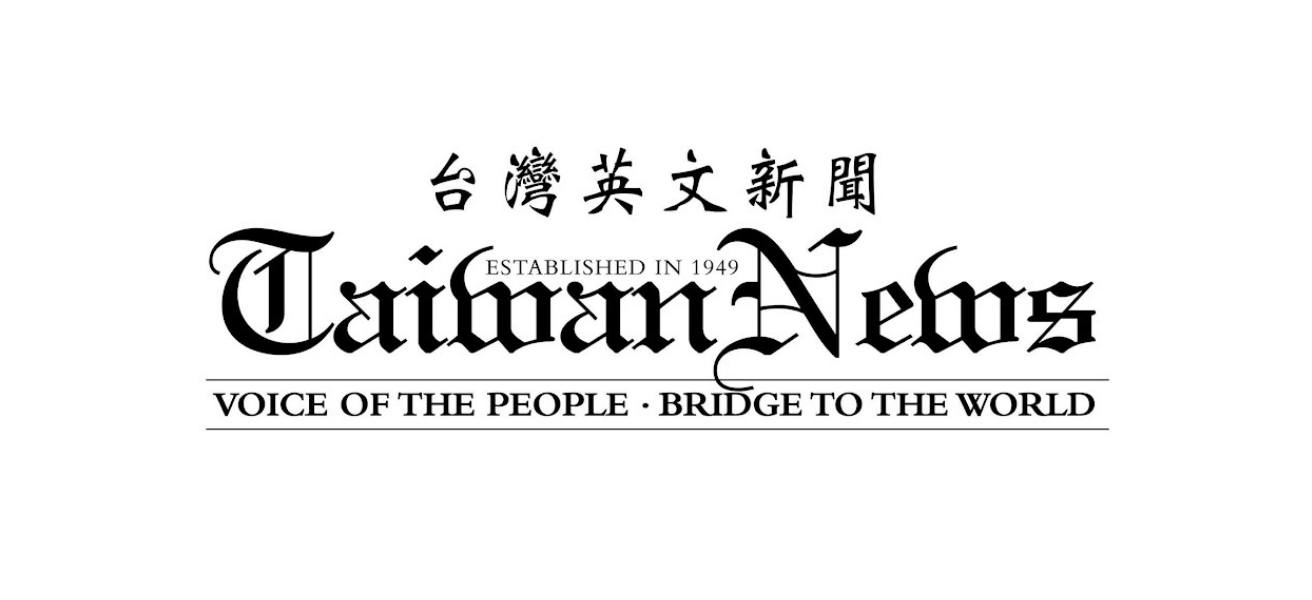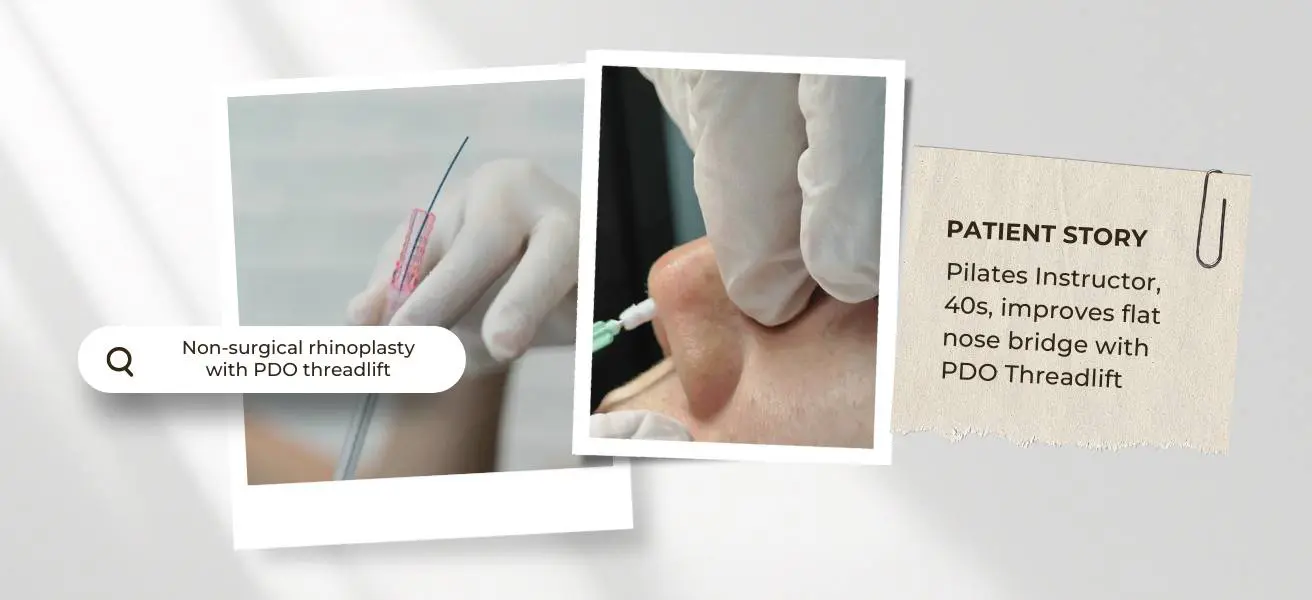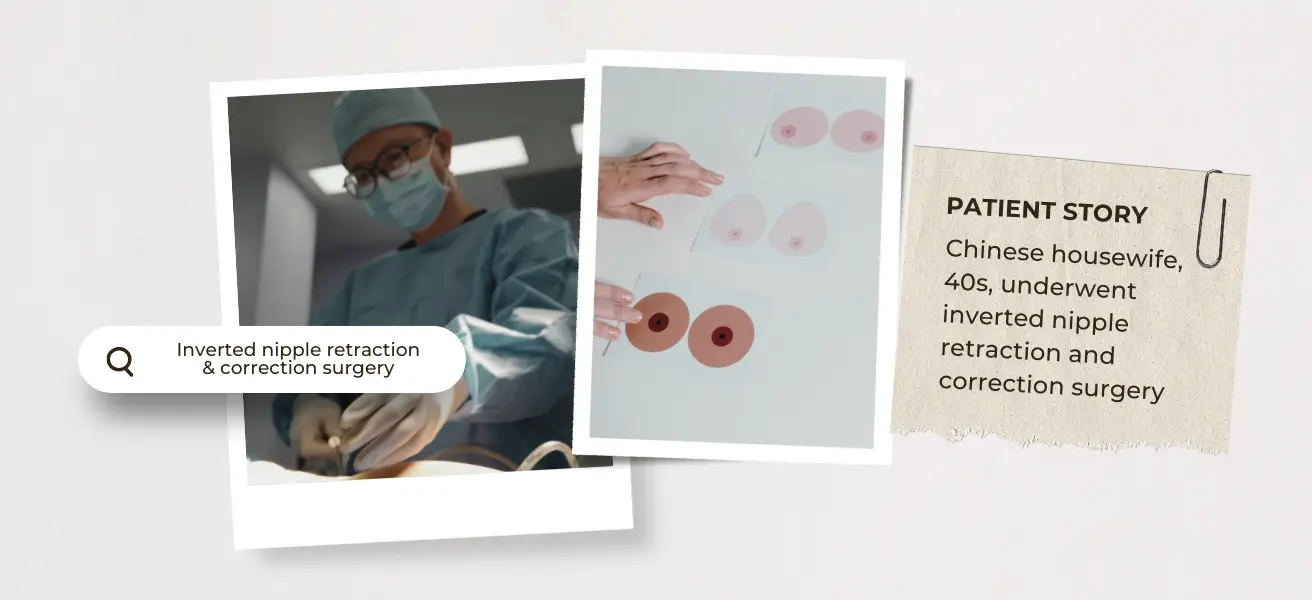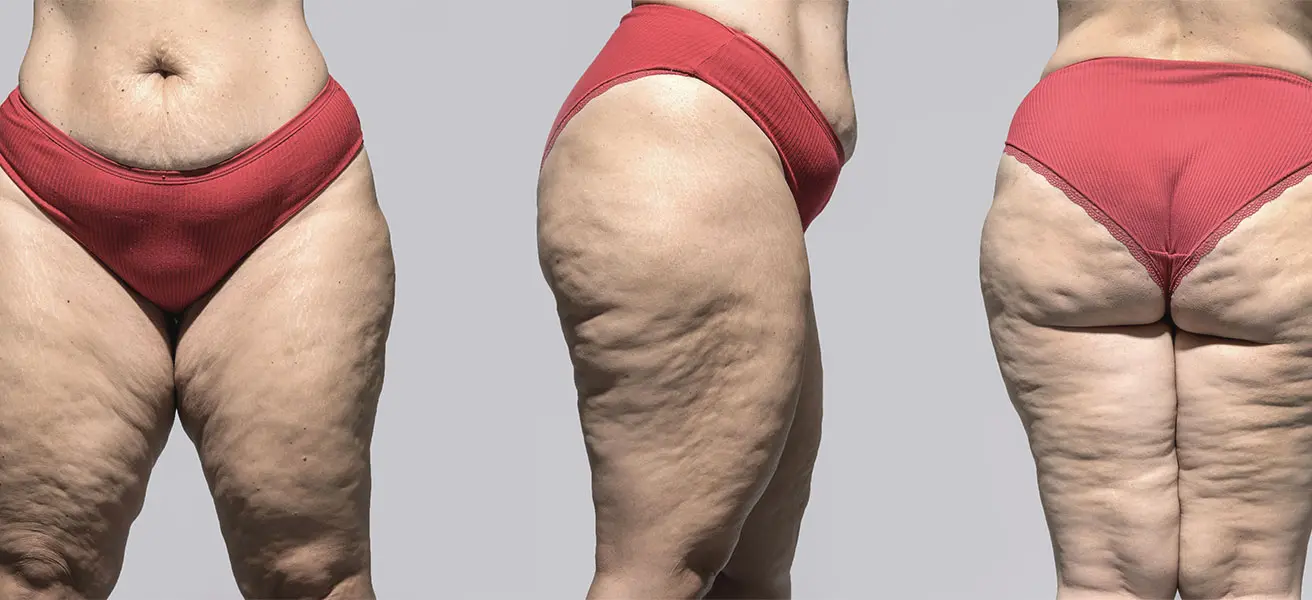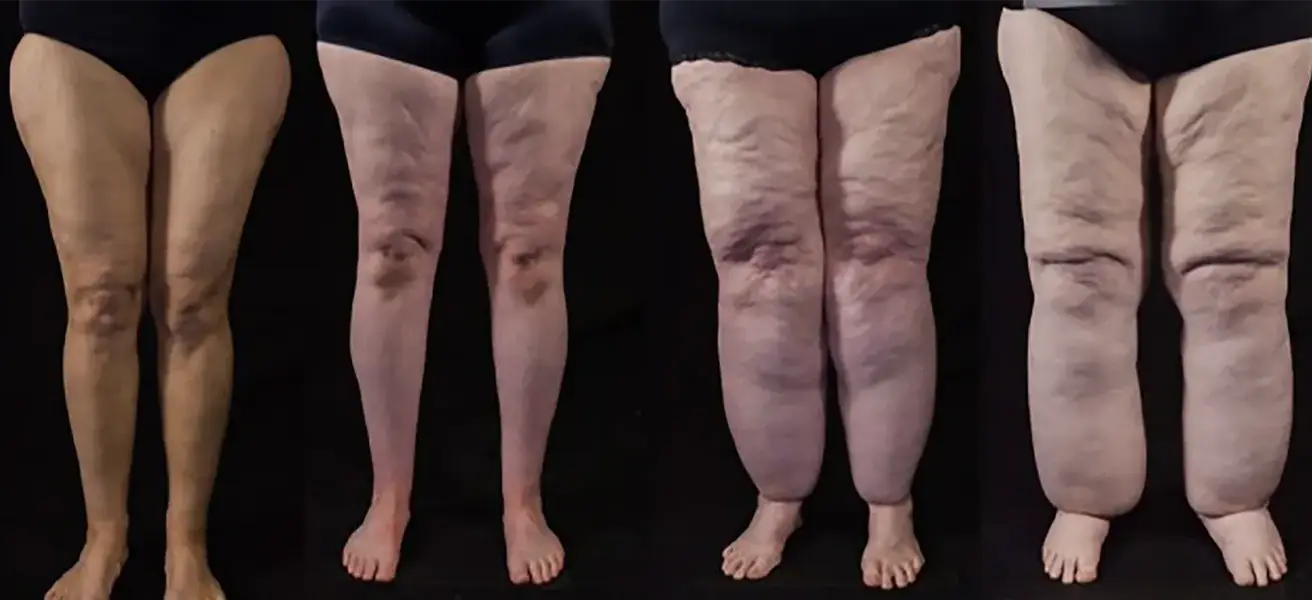Here is a breakdown of the different grades, how gyno affects your self-esteem, and what can be done to get you ready for your NS journey in full confidence.
Table of Contents
Man boobs or 'moobs' might sound like a joke or a made-up word, but for many men, it is a real problem that's far from a laughing matter.
Man boobs can be either pseudogynecomastia or gynecomastia.
Gynecomastia is a medical condition that can also indicate underlying health problems.
Pseudogynecomastia: When the man boobs are just fat
Pseudogynecomastia, medically known as lipomastia, is a condition where fat builds up in the chest area, possibly due to a person being overweight or obese.
Gynecomastia: When the man boobs are enlarged male glands
Everyone is born with breast glands, which are not usually noticeable in males. Gynecomastia results from enlarged breast tissue (glands and fat) rather than only fat. Unlike pseudogynecomastia, exercising or losing weight will not reduce or remove enlarged male breasts. The male breast tissue is overdeveloped and become enlarged, causing soreness, pain and discomfort for the affected individual.
The only effective solution to this medical condition is gynecomastia surgery [1].
How common is enlarged male breasts in men? Do they affect only adult males?
Enlarged male breasts affect males of all ages, including newborns, during puberty, and older adults. In fact, according to a study [2]:
- gynecomastia in infancy is common, and it usually goes away on its own before the baby reaches 1 year old
- hormonal imbalances are prevalent during puberty, but a high percentage of adolescent gynecomastia tend to resolve on their own within a year or two
- incidence of enlarged male breasts in adults increases with age
Main causes of enlarged male breasts: Testosterone deficiency & Hormonal Imbalance
Gynecomastia is a common male breast disorder that stems from an imbalance between the hormones androgen and estrogen.
Possible causes and factors that may cause hormonal imbalance, thus increasing the risks of enlarged male breasts
1. Natural Herbs And Oils – A Natural Disaster Waiting To Happen. What about soy?
With the increasing awareness of the importance of health, natural products are commonplace on supermarkets' food shelves, including the grooming section. While going au naturel when it comes to the latter is commendable – read the ingredients label. When applied topically in large amounts, products such as herbal supplements [4] and, lavender and tea tree oils [5] may lead to gynecomastia. These are commonly found in shampoos, lotions and soaps, and while the notion may seem far-fetched to the uninformed individual, it can happen.
Soy proteins, despite containing high levels of phytoestrogens (estrogen-like compounds derived from plants), no scientific proof has been that soy causes enlarged male breasts [6].
2. Obesity – Detrimental for your health in so many ways
Obesity, as we know it, is the cause of many health problems, gynecomastia included. Obesity lowers testosterone levels, thus causing havoc to your muscle-to-fat and estrogen-to-androgen ratio [7]. The male hormone androgen will convert into estrogen in the subcutaneous fat. Excessive fat in obese men may worsen the appearance of man boobs.
3. Smoking cigarettes & Abuse of alcohol, steroids, cannabis
3.1 Alcohol abuse and cigarette smoking
Arguably, two common bad habits among people are excessive drinking and cigarette smoking. Gynecomastia is more common in men who have drunk alcohol and smoked cigarettes before (67% and 43%) [8].
Smoking cigarettes is harmful to every part of your body. This smelly and unhealthy habit has been known to cause many diseases. Smoking cigarettes has also been known to decrease testosterone production, which will eventually cause hormone imbalance. A study published in the American Journal of Epidemiology found that smokers who smoke more than 36.5 packs a year "show a faster age-related decline in testosterone than non-smokers" [9].
Alcohol abuse affects the liver's ability to get rid of excess estrogen, and when it can't function effectively, it may also start converting androgens into estrogens. Smoking also causes hormone imbalance and, like excessive drinking, will eventually result in enlarged male breasts as it lowers your testosterone [10].
3.2 Abuse of anabolic steroids
To achieve that close-to-perfect physique, a man would sometimes do just about anything. The common uses of anabolic steroids are for bulking up and performance enhancement. It has been reported that 1% to 5% of men abuse steroids in their lifetime [11].
While side effects such as roid rage seem to take centre stage most of the time, other equally pressing side effects such as gynecomastia should not be ignored. Anabolic steroid contains aromatase, an enzyme that converts androgens into estrogens [12]. Note that this can also occur with legal steroids, so always remember that there are no shortcuts to success!
3.3 Cannabis Abuse
The direct relationship between cannabis abuse and gynecomastia has been successfully proven. Cannabis abuse encourages hyperprolactinemia and low serum testosterone levels [13]. In Singapore, cannabis use, in any form, is illegal.
4. Systemic Disorders
Systemic disorders are health conditions that impact the entire body when a single organ or more in the respiratory, neurological, circulatory, and digestive systems are affected.
5. Hyperprolactinemia
Medications can cause hyperprolactinemia, a condition of elevated prolactin levels in blood [14]. Prolactin is a hormone responsible for lactation and breast development, amongst others. While prolactin is not directly responsible for causing gynecomastia, it suppresses the hormone-releasing hormone that helps your sex glands mature and function. Prolactin receptors are also found in male breast tissue and may lead to enlarged male breasts [15].
6. Renal disease
Chronic renal failure is commonly associated with hyperprolactinemia. Renal disease can cause testosterone deficiency, which may cause enlarged male breast tissues [16].
7. Kennedy syndrome
1 in 40,000 men suffers from Kennedy's disease. It is a genetic motor neuron disease that can cause muscular weakness, muscle atrophy and muscle twitch, usually occurring after testosterone resistance between the ages of 40 and 50 [17].
8. Androgen insensitivity syndrome
Androgen insensitivity syndrome is when a person is born male but is resistant to male hormones. In this rare syndrome, gynecomastia develops during puberty and does not regress spontaneously [18].
9. Graves' Disease: Hyperthyroidism and hypothyroidism
Graves' disease is an autoimmune thyroid disorder, the most common cause of hyperthyroidism. Hyperthyroidism happens when the thyroid gland puts too much thyroid hormone into the bloodstream. Enlarged male breasts has been reported in about 40% of men with hyperthyroidism. [19].
10. Testicular Germ cell tumours
Germ cell tumours are growths of cells from reproductive cells in the testicles or the ovaries. It stimulates testosterone production and increases the conversion from androgens into estrogens. Some germ cell tumours occur in other body parts such as the abdomen, brain and chest [20].
11. Liver disease
Gynecomastia is commonly found in patients with liver cirrhosis, which is the severe scarring of the liver [21, 22]. This liver disease and the side effects of its medication disrupt the hormonal levels, thus encouraging enlarged male breasts.
12. Male Menopause (Andropause)
Andropause, also known as male menopause, can cause low sex drive, erectile dysfunction, low energy, depression and mood swings. This is due to the decreasing testosterone levels related to ageing. Men undergoing andropause with gynecomastia are primarily physiological. In the United States, it is estimated that there are about 2.4 million men from 40 to 69 years old who have lower levels of testosterone [13].
13. Testosterone deficiency
According to Mieritz et al., causes of testosterone deficiency [23] include:
13.1 Orchitis
Inflammation of one or both testicles
13.2 Testicular tumours
Most common in men between the ages of 20 and 40, the tumours could be malignant or cancerous
13.3 Chemotherapy
Using specific drugs to shrink or kill cancer cells.
13.4 Radiotherapy
Using radiation therapy with high-energy beams to kill cancer cells
13.5 Benign tumours on pituitary gland
Abnormal growth in the pituitary gland, found at the base of your brain and the top of your nose
13.6 Opioid treatment or Abuse
Abuse of powerful pain-reducing medications can decrease testosterone level
13.7 Kallmann syndrome
A genetic and hormonal disorder that delays or prevents puberty and causes olfactory impairment
13.8 Other genetic defects
Klinefelter syndrome is one the most common genetic conditions, where a male is born with an extra X chromosome that affects about one in every 550 males.
14. Drug-induced gynecomastia
Various medications have been associated with gynecomastia as they contain "estrogenic properties, metabolises testosterone, enhance estrogen production" [2]. Medications for high cholesterol (statin), bacterial infections (amoxicillin) and gastrointestinal diseases (proton pump inhibitors) are at higher risk of developing enlarged male breasts [24].
Case reports in 2018 on "Statin Medications And The Risk Of Gynecomastia" by Skeldon et al. have suggested an increased risk of gynecomastia with statins, a class of drugs often prescribed to help reduce cholesterol levels in the blood [25].
Gynecomastia surgery
Gynecomastia surgery has been the only effective solution to permanently remove the enlarged male breast tissue for decades. Suitable candidates include those whose condition does not resolve independently within a year.
Gynecomastia surgery is also known as a chest masculinisation surgery as it aims to remodel the contour of the chest - whether you have enlarged male breasts in one or both chests - and relieve pain and discomfort associated with the medical condition. If your condition causes protruding or prominent areolas, the surgery can rectify the issue.
We welcome you to call us and schedule a consultation with Dr Ivan Puah to understand how we can help you address your issue.













